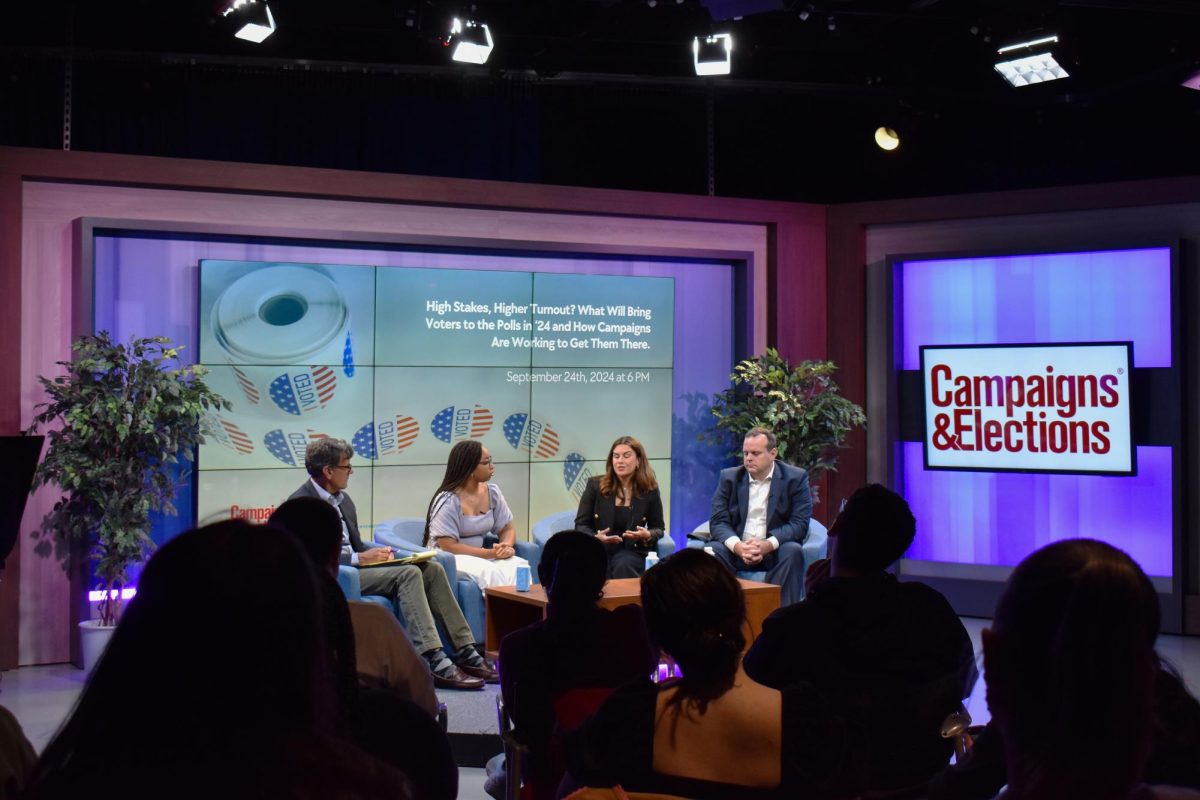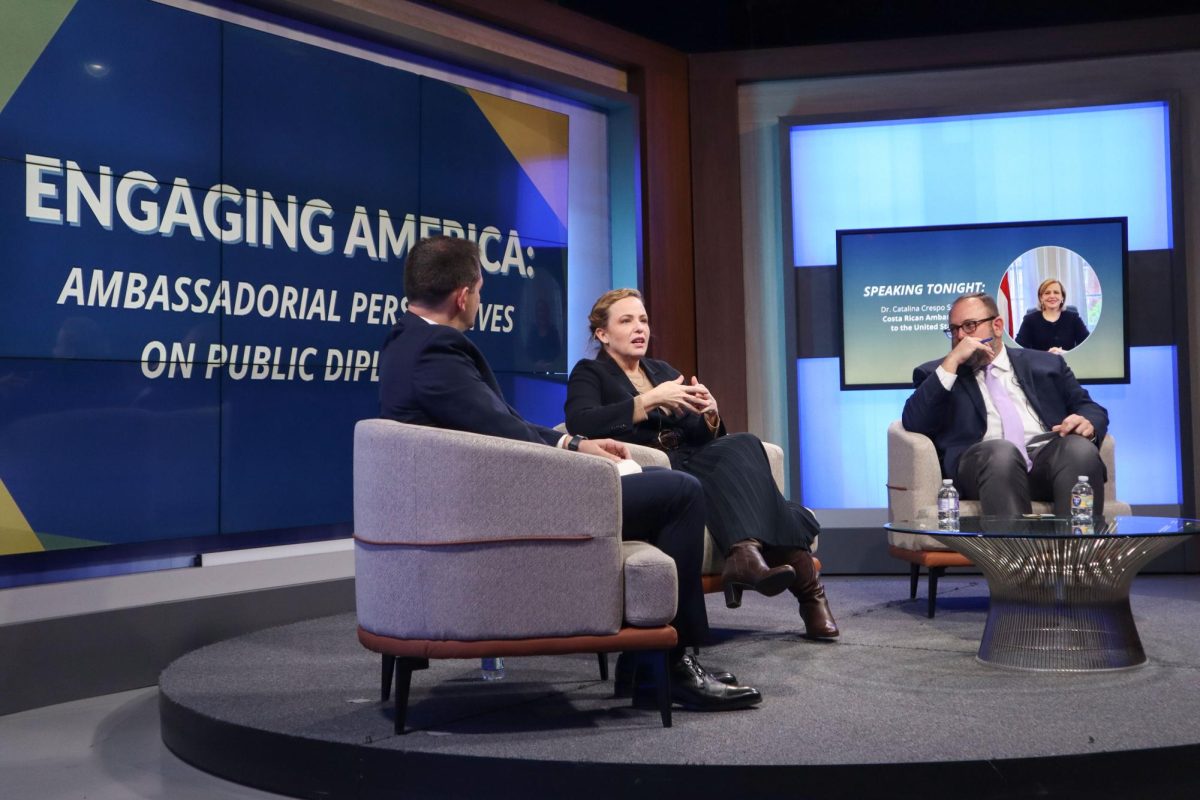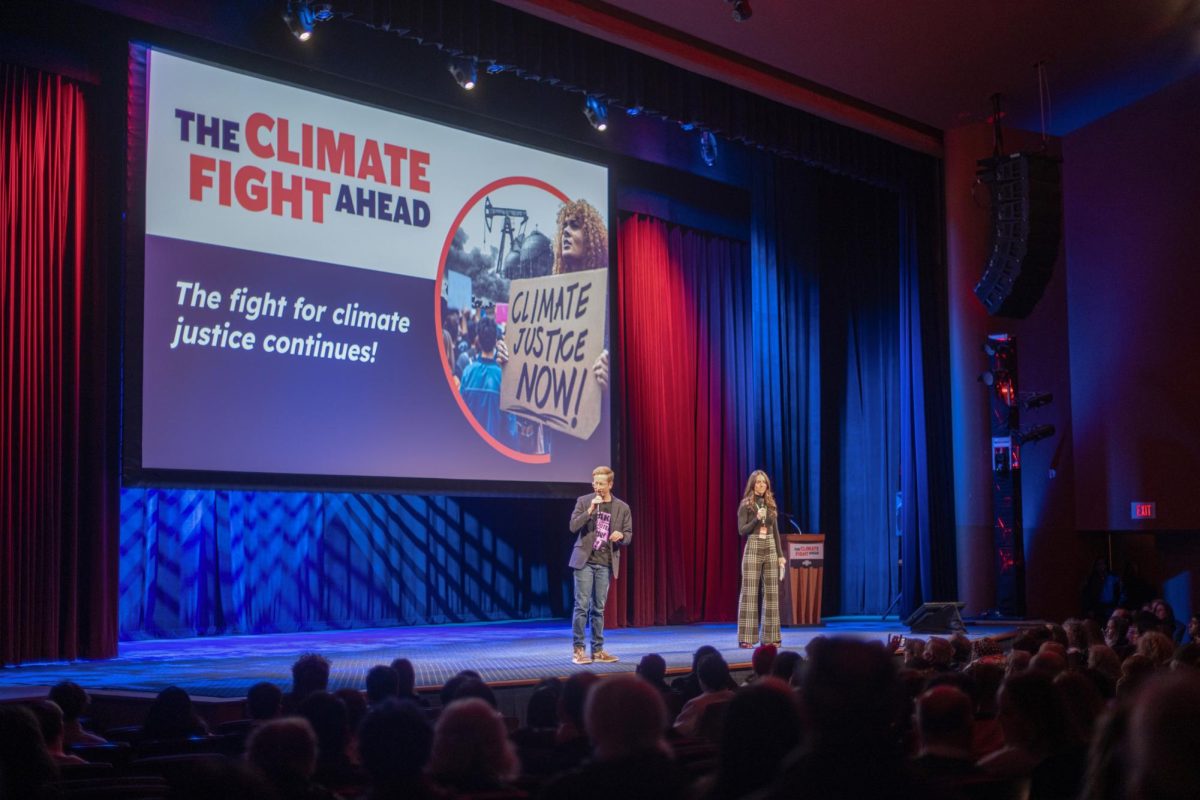A panel of political consultants discussed ways to get citizens to vote in the upcoming presidential election at the School of Media & Public Affairs Tuesday.
SMPA Director Peter Loge moderated a panel with political consultants Mariel Saez and Tad Rupp and SMPA junior Camille Murray to discuss how political campaigns are getting people to vote in the upcoming presidential election. The event, held in the SMPA TV studio and streamed on their YouTube channel, was sponsored by Campaigns and Elections — an organization that provides news and advice to political professionals — and SMPA.
Loge began the discussion by asking Rupp — a partner at the consulting firm Targeted Victory, which specializes in political campaigns and public affairs — if efforts to get out the vote, or GOTV, and create interest in voting are different in 2024 than in previous elections. Rupp said the ability to use technology and create content on the internet to target specific groups of people in the effort to get out the vote differentiates this election from when he started in politics in the 2004 election cycle.
“I think I’m super positive in all the GOTV opportunities and how much everything is changing for the good,” Rupp said.
Rupp said although digital outreach is effective in connecting with voters, there is “value” in candidates holding in-person rallies as a tool to encourage people to vote.
“People leave fired up, and that is probably the best weapon that we have in order to go out and mobilize more people,” he said.
Murray said people will notice the stakes of the election as it relates to them and will cast their vote accordingly. Issues like the economy and health care are among the most important to registered voters in this election, according to the Pew Research Center.
“I think seeing what this election means, what’s at stake for them — as young people. as young Black people, as young people of color, as young Hispanic people, as young undocumented people, as young LGBTQ+ people — they see what’s at stake with those rights in voting, and I think that’s going to come and push them out to vote in this election.”
Murray said she and other young voters must hear from the candidates themselves, or proxies for the candidates, in order to have the motivation to vote. She said influencers on social media platforms like TikTok talking about the issues will only go so far in influencing voters.
“You will know about Tim Walz if you’re scrolling on TikTok, you will know about Kamala Harris when you see a Harris TikTok pop up on your for you page or an ad on X, or even on Instagram and Snapchat, you will see it,” she said.
Saez, an executive vice president of the political consulting firm SKDK, said “turning enthusiasm into action” is important when engaging young voters.
“You have two new candidates at the top of the ticket. We need to educate voters about their record, their vision for the future,” Saez said. “That’s why you’re seeing them engage on a nationwide battleground state tour called the ‘New Way Forward bus tour’ so they can lay out that affirmative vision.”
Saez said creating an “inclusive operation” at conventions, such as this year’s Democratic National Convention in Chicago, Illinois, involves using many mediums including social media, television and online news to get their message to impressionable voters.
“So we’re really creating a surround sound, and we’re trying to reach young people, people of color, voters who you know maybe still are on the fence about being committed to making a plan to vote,” Saez said.
Bringing the event to a close with a summery of the night, Loge said the most common strategy to obtain voters seems to be “old school” like knocking on neighbors’ doors and establishing a personal connection with citizens on their plans to vote.
“It’s about neighbors talking to neighbors, families talking to families,” Loge said.
He said although there are new tools and new ways to collect data, a campaign is still a “people-to-people” endeavor.
“So 2024, new tools, more data collection, more options,” Loge said. “So that’s new, but what’s fundamentally really old is why we do politics, which is we’re talking to people.”










